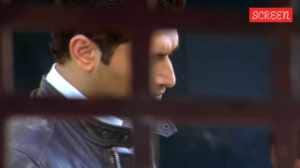India to talk West Asia with Dubai, Bahrain
India is set to talk West Asia this month with two high-profile visitors — UAE Vice-President and Prime Minister and Ruler of Dubai Mohammed bin Rashid Al Maktoum, and Crown Prince of Bahrain Shaikh Salman bin Hamad Al Khalifa.

India is set to talk West Asia this month with two high-profile visitors — UAE Vice-President and Prime Minister and Ruler of Dubai Mohammed bin Rashid Al Maktoum, and Crown Prince of Bahrain Shaikh Salman bin Hamad Al Khalifa.
The Bahrain Crown Prince’s visit—his maiden trip to India—is scheduled from March 19-23. The Ruler of Dubai ruler will arrive on March 26.
India is expected to place its security concerns on the table, discussing the funding of certain terrorist groups and the fact that some of these are using the country hiding place. While India is expected to convey its gratitude for the deportation of Dawood aide Abdul Qayyum recently from Dubai, it will seek continuing cooperation from the UAE in this regard.
Sources pointed out that though it is known that Dawood Ibrahim has the passport of an African country, there are intelligence reports that the don and his aides could be in parts of UAE.
National Security Adviser M K Narayanan had recently spoken about the many “instances of funds received via banking channels from so-called safe locations such as Dubai and UAE (United Arab Emirates) intended for terrorist organisations” being detected by Indian counter-terrorist agencies.
Economic ties with the two countries are poised for a major boost as well. Annual trade between Dubai and India increased from $2.5bn in 2002 to $10.9bn in 2006 and India is now Dubai’s largest export destination—worth $4.5bn in 2006. Indian exports to Dubai reached $6.4bn last year, only behind top exporter China. Areas like food-processing has been identified as a focus area between the two countries.
The Bahrain Crown Prince’s visit is expected to see the opening of the Bahrain embassy in Delhi. Bahrain now has a consulate-general in Mumbai.
Given the presence of the large Indian community in Bahrain, the two countries plan to enhance air links between them. Air India Express, a low-cost subsidiary of Air India, will start flights to Bahrain from March 25. This will increase the number of Air India flights to Bahrain from seven to 11 a week.
Issues relating to Indian labour, and the diaspora will also figure in the discussions during the visits.







- 01
- 02
- 03
- 04
- 05
























